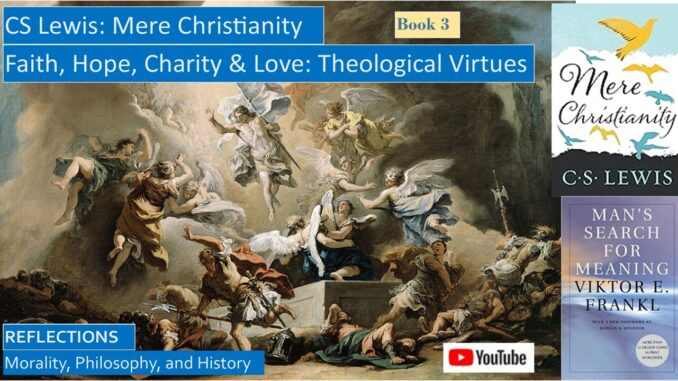
We will reflect on the theological virtues: Faith, Hope, and Charity in CS Lewis’ Mere Christianity.
How is faith related to Love?
Is Charity identical with Love in the Theological Virtues?
YouTube video for this reflection: https://youtu.be/avesW8whRSQ
Previously, we reflected on how Christians in England and Europe faced the fascist and Nazi threats during World War II, and how these experiences influenced the decrees of Vatican II. We also reflected on whether CS Lewis used St Augustine and the other Church Fathers as sources.
Facing the Nazi Menace: CS Lewis’ Mere Christianity and Viktor Frankl’s Memoirs on Auschwitz, Books 1-4
https://seekingvirtueandwisdom.com/facing-the-nazi-menace-cs-lewis-mere-christianity-and-viktor-frankls-mans-search-for-meaning/
https://youtu.be/x-9FeH9Gyng
Preparing the Way for Vatican II: CS Lewis’ Mere Christianity, Books 1-4
https://seekingvirtueandwisdom.com/preparing-the-way-for-vatican-ii-cs-lewis-mere-christianity/
https://youtu.be/udJQzmqst34
Was CS Lewis a Closet Catholic? Reflections on Mere Christianity, Books 2-4
https://seekingvirtueandwisdom.com/was-cs-lewis-a-closet-catholic-reflections-on-his-mere-christianity/
https://youtu.be/ksWomcEg8C0
Good Friday, Easter, and Trinity: CS Lewis’ Mere Christianity, Narnia, & St Augustine’s Confessions, Books 1-4
https://seekingvirtueandwisdom.com/good-friday-easter-and-trinity-cs-lewis-mere-christianity-narnia-st-augustines-confessions/
https://youtu.be/c71ygBqvPoY
What is roughly the progression CS Lewis follows in Mere Christianity? He first refutes his initial misunderstanding of Christianity that led him to be an atheist in his youth, misconceptions that many in the modern world share. CS Lewis then discusses the essence of Christian morality in our modern world. Next, he discusses why the Cardinal virtues of prudence, temperance, justice or morality, and fortitude or courage apply to us today. CS Lewis then discusses forgiveness, and then Pride, or Envy, and then our current reflection on Faith, Hope, and Love or Charity. Next, CS Lewis ponders on other moral issues, including romance and Christian marriage.
Morality and the Cardinal Virtues in CS Lewis’ Mere Christianity: Prudence, Temperance, and Justice, Books 1-3
https://seekingvirtueandwisdom.com/mere-morality-and-the-cardinal-virtues-in-cs-lewis-mere-christianity-prudence-temperance-and-justice/
https://youtu.be/Djbzmeb2nc0
CS Lewis’ Mere Christianity: Forgiveness, Pride, and Envy. Can Pride Ever Be Good?, Book 3
https://seekingvirtueandwisdom.com/cs-lewis-mere-christianity-forgiveness-pride-and-envy-can-pride-ever-be-good/
https://youtu.be/Pmu6hzU5RaQ
Faith, Hope, Charity, and Love in CS Lewis’ Mere Christianity: The Theological Virtues, Book 3
https://youtu.be/avesW8whRSQ
CS Lewis’ Mere Christianity: Intimacy, Romance, Marriage, and Divorce, Books 2-3
https://seekingvirtueandwisdom.com/cs-lewis-mere-christianity-reflections-on-intimacy-romance-marriage-and-divorce/
https://youtu.be/fZcOip3WGe8
FAITH, HOPE, CHARITY OR LOVE: THE THEOLOGICAL VIRTUES
All Christian denominations mostly concur in their understanding of the theological virtues: Faith, Hope, and Charity, which many English Bibles translate as love.
Should we fault CS Lewis for not repeatedly emphasizing the Christian core belief, the two-fold Love of God and neighbor? After all, in all his literary works, St Augustine explicitly and repeatedly emphasized the centrality of this two-fold Love of God and neighbor in many of his works. In his longer works, like the Confessions, he mentions the two-fold Love in many of the books.
St Augustine: On Christian Teaching, aka On Christian Doctrine, How To Read Scripture
http://www.seekingvirtueandwisdom.com/st-augustine-on-christian-teaching-how-to-read-scripture/
https://youtu.be/uQCnAJMPoos
Summary of St Augustine’s Confessions of Faith and Repentance
https://seekingvirtueandwisdom.com/summary-of-st-augustines-confessions-of-faith-and-repentance/
https://youtu.be/sIpx5qJMGvw
CHARITY: LOVE IN THE CHRISTIAN SENSE
Many Christians deprecate Charity, preferring Love, as if they are separate virtues, where Charity is bad, encouraging dependence, while Love is good. But CS Lewis would reject this view. CS Lewis teaches us, “Charity means Love in the Christian sense. But love, in the Christian sense, does not mean an emotion. It is a state not of the feelings but of the will; that state of the will which we have naturally have about ourselves and must learn to have about other people.”
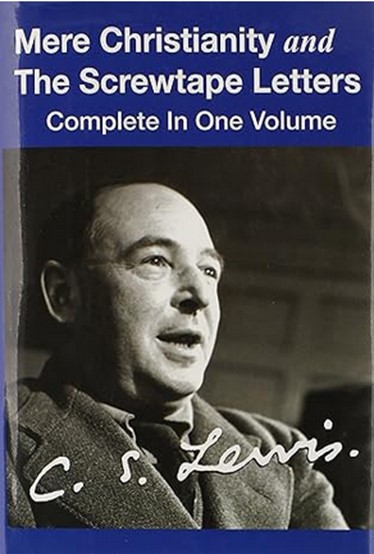


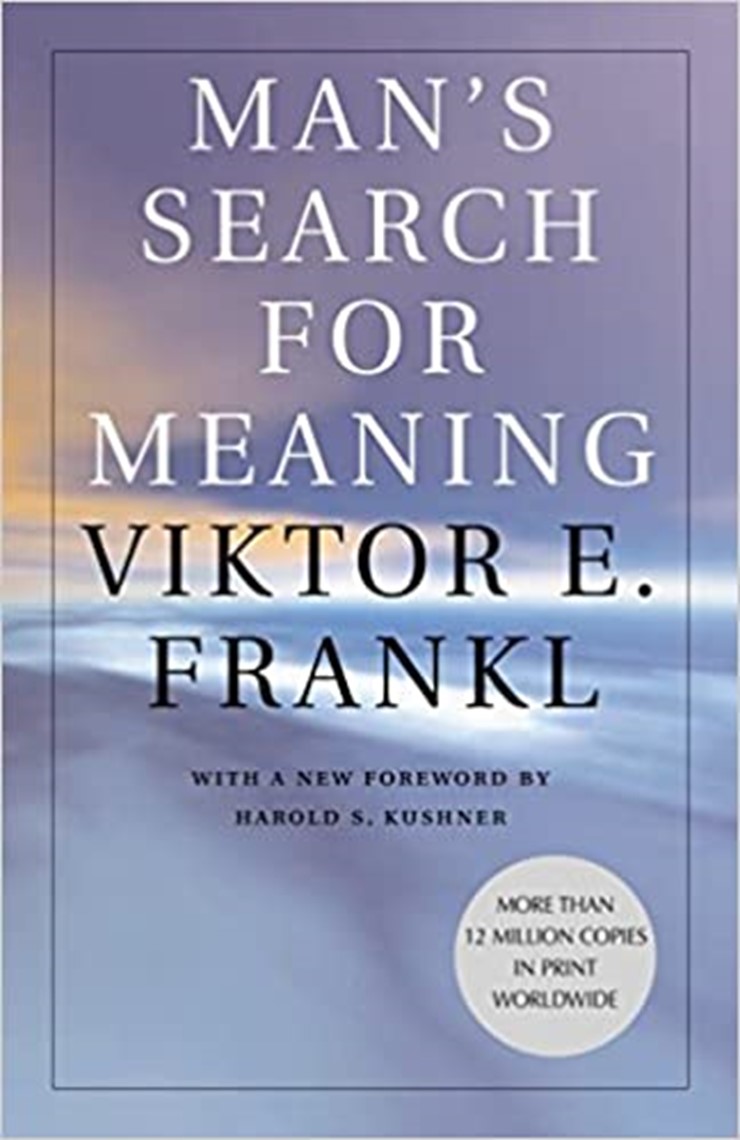
“Do not waste time bothering whether you ‘love’ your neighbor; act as if you did.” Be kind to your neighbor, and often you will like and love him more. But if they do not reciprocate, or are openly hostile, love them anyway, and help them if you can. We always find it easier to love, or like, those who are courteous towards us.
But CS Lewis warns us of this spiritual trap: “If you do your neighbor a good deed, not to please God and obey the law of charity, but to show him what a fine forgiving chap you are, and to put him in your debt, and then sit down to wait for his gratitude, you will probably be disappointed.”
CS Lewis continues, “But whenever we do good to another person, just because they are a person, made like us by God, and desiring their happiness as we desire our happiness, we shall have learned to love them a little more, or, at least, to dislike them less.”
“Do not sit trying to manufacture feelings. Ask yourself, ‘If I were sure that I Loved God, what would I do?’ When you have found the answer, go and do it.”
Encouraging good habits is the core of a monastic mindset, and forms the core of classic Catholicism, but CS Lewis never uses these words, perhaps he is avoiding sounding too Catholic.
John Climacus: First Step of the Ladder of Divine Ascent
http://www.seekingvirtueandwisdom.com/st-john-climacus-first-step-on-the-ladder-of-divine-ascent/
https://youtu.be/Fco0W3bt5GA
The Philokalia, Classics by the Eastern Church Fathers, the Love of the Beautiful
https://seekingvirtueandwisdom.com/introduction-to-the-philokalia-the-love-of-the-beautiful/
https://youtu.be/rKVBhdHWHGI
How does CS Lewis close this chapter? “Christian Love, either towards God or towards man, is an affair of the will. If we are trying to do His will, we are obeying the Commandments, ‘Thou shalt Love the Lord thy God.’ He will give us feelings of love if He pleases. We cannot create them for ourselves, and we must not demand them as a right.”[1]
What does this last sentence mean? I am not quite sure, perhaps he is echoing a thought in a patristic writing. Perhaps this means we should not strain for love, we should just let Love flow when we are most receptive to the Holy Spirit.
CS Lewis continues, But we must remember, “though our feelings come and go, His love for us does not. It is not wearied by our sins, or our indifference; and therefore, it is quite relentless in its determination that we shall be cured of those sins, at whatever cost to us, at whatever cost to Him.”
CS Lewis does not say this here, but the main “cost” to God is the begetting and sending of his Son Jesus Christ to descend to assume our flesh, so that we may ascend to become adopted sons of the Father.
CS Lewis lived in a different time when Christians battled real evil personified by Nazism, communism, and totalitarianism. He does not address the recent notion that Christians should not be charitable towards their poor neighbor, that they should instead be cruel towards them, perhaps to punish or improve them, is a dangerous temptation.
https://www.theatlantic.com/ideas/archive/2018/10/the-cruelty-is-the-point/572104/
HOPE: YEARNING FOR ETERNAL VIRTUES
CS Lewis teaches us: “Hope is one of the Theological virtues. This means that a continual looking forward to the eternal world is not, as some modern people think, a form of escapism or wishful thinking, but one of the things a Christian is meant to do.” “Aim at Heaven and you will get earth ‘thrown in:’ aim at earth and you will get neither.”
CS Lewis, in his London broadcasts on Christianity during World War II, gave the besieged British hope that the forces of good would prevail, that Britain would defeat the evil Nazi regime. In the same way, the psychologist Viktor Frankl encouraged his fellow prisoners in Auschwitz not to lose their soul, to keep their hope alive that they would see their loved ones once the war ended.
Is the yearning we feel for a loved one whom we miss like the ardent hope we experience for the kingdom of God? Indeed, hope thrives with love. Thoughts of their loved ones was what kept many Jews alive who toiled in the Auschwitz work camps of World War II. Viktor Frankl tells us: “The truth is that love is the ultimate and highest goal to which man can aspire.” In the suffering of the camps, Frankl tells us that he realized that “the salvation of man is through love and in love. I understood how a man who has nothing left in this world still may know bliss, be it only for a brief moment, in the contemplation of his beloved.”[2]
The concentration camp prisoners with a rich inner spiritual life possessed hope, they were more likely to survive. Viktor Frankl remembers, “In spite of all the enforced physical and mental primitiveness of life in a concentration camp, it was possible for spiritual life to deepen. Sensitive people who were used to a rich intellectual life may suffer more pain, but the damage to their inner selves was less. They were able to retreat from their terrible surroundings to a life of inner riches and spiritual freedom.”[3]
Viktor Frankl’s Logo-therapy, Man’s Search For Meaning in Life, Love, and Suffering
https://seekingvirtueandwisdom.com/viktor-frankls-logo-therapy-mans-search-for-meaning/
https://youtu.be/1nTYlhDUJh8
Many people ridicule the Christian concept of Heaven, saying: “They do not want to spend eternity playing harps.” But CS Lewis points out: “Scriptural imagery, harps, crowns, gold, and such, are a symbolic attempt to express the inexpressible. Musical instruments are mentioned because for many people music” “strongly suggests ecstasy and infinity. Crowns are mentioned to suggest that those who are united with God in eternity share His splendor and power and joy. Gold is mentioned to suggest the timelessness of Heaven, since gold does not rust.”[4]
CS LEWIS ON FAITH
CS Lewis teaches us that “the battle is between faith and reason on one side and emotion and imagination on the other.”
How can you keep your faith, how can your faith not dim like a candle starved for oxygen? CS Lewis advises us: “Deliberately hold your faith daily before your mind and for some time every day,” “by daily prayers, religious readings, and church-going.” “We have to be continually reminded of what we believe.”[5]
All three are needed: prayer, spiritual reading, and also attending church services regularly, as Christianity is a public affair, not a private secret, as illustrated in in St Augustine’s Confessions. St Augustine remembers: “Victorinus had read the Holy Scriptures, and made the most painstaking and careful study of all Christian literature. Privately, between friends, though never in public, he used to say to Simplicianus, ‘I want you to know that I’m now a Christian.’ Simplicianus replied, ‘I shall not believe it or count you as a Christian until I see you in the Church of Christ.’ At this, Victorinus would laugh and say, ‘Is it then the walls of the church that make the Christian?’”
St Augustine continues, “But later on, as a result of his attentive reading, he became resolute. He was seized by the fear that Christ might deny him before the holy angels if he was too faint-hearted to acknowledge Christ before men, and he felt himself guilty of a great crime in being ashamed of the sacraments instituted by Your Word in his lowly state.”[6]
His studies answered his question, Victorinus came to realize that, indeed, the walls of the church do make the Christian. He submitted his name to the bishop to be baptized the next Easter publicly in the church, to his fellow Christians in public worship of Christ, encouraging one another, as Hebrews states.[7]
St Augustine’s Confessions, His Conversion, Baptism, St Monica’s Death, and Philosophy, Books 8 & 9
https://seekingvirtueandwisdom.com/st-augustines-confessions-his-conversion-baptism-st-monicas-death-and-philosophy-books-8-9/
https://youtu.be/Vijtjxm3Ta0
CS Lewis reminds us: “The main thing we learn from a serious attempt to practice the Christian virtues is that we fail.” “Every faculty you have, your power of thinking or of moving your limbs from moment to moment, is given to you by God.”
What is it like when we do something to please God? “It is like a small child going to its father and saying, ‘Daddy, give me sixpence to buy you a birthday present.’ Of course, the father does, and he is pleased with the child’s present. It is all very nice and proper, but only an idiot would think that the father is sixpence to the good on the transaction.”[8] If we could succeed in living the Christian virtues, we “would only be giving back to God what was already God’s own.”
Should we have faith in our own efforts to be virtuous, or should “we despair of doing anything for ourselves and leave it to God?” This realization may come slowly, or it may come in “a sudden flash, as it did to St Paul or John Bunyan.” This is one of the few times CS Lewis mentions a theologian by name: John Bunyan was the Protestant author of Pilgrim’s Progress. CS Lewis had written a work titled Pilgrim’s Regress shortly after his conversion.
CS Lewis teaches us: “The sense in which a Christian leaves it to God is that he puts all his trust in Christ: trusts that Christ will somehow share with him the perfect human obedience which He carried out from His birth to His crucifixion: that Christ will make the man more like Himself and, in a sense, make good his deficiencies. In Christian language, He will share His sonship with us, will make us, like Himself, Sons of God.”[9]
In his Agape and Eros, the Lutheran Anders Nygren links St Paul’s understanding of faith to the Love of God. Nygren teaches us that Paul seeks to give man’s “Love towards God” “its proper name, which he calls ‘FAITH.’ Faith includes in itself the whole devotion of love, while emphasizing it is a reciprocated love. Faith is love towards God, but a love of which the keynote is receptivity, not spontaneity.”[10]
Anders Nygren, On Christian Agape-Love and Eros-Love in Gospels and Pauline Epistles
https://seekingvirtueandwisdom.com/anders-nygren-on-christian-agape-love-and-eros-love-in-gospels-and-pauline-epistles/
https://youtu.be/KniBalQMemM
What do faith, hope, and love all have in common? When one of these virtues increases, they all increase. When these virtues increase in us, kindness to our neighbor also increases. Maybe faith, like love, like hope, inspires greater kindness. In Auschwitz, small acts of kindness helped Viktor Frankl survive many monotonous cruelties.
One capo took a liking to him because Viktor, during those long marches, attentively “listened to his love stories and matrimonial troubles.” This kind capo placed Viktor in the front lines to avoid the worst work parties, and made sure that at lunch the cook, when Viktor’s time came in the line, “dipped the ladle to the bottom of the vat to fish out a few peas.”[11]
When listening to CS Lewis’ broadcasts on Christianity on the radio, the London listeners must have wondered when the German bombing raids early in the war, then the German V1 and V2 buzz rockets later in the war, would halt their death and destruction, the same way those laboring in the Nazi work camps wondered when the war would be over, whether they would survive the war.
Viktor Frankl remembers the days after the war ended, when he was released from the camps, when he learned that his wife did not survive the war, and that he was the only Jew in his family who survived the war.
Viktor Frankl remembers:
“One day, a few days after liberation, I walked and walked,
Miles and miles through flowering meadows, larks rising to the skies.
There was no one seen for miles around, nothing but the wide earth and sky,
Nothing but the lark’s jubilation and the freedom of space.”
Viktor remembered the prayer, “I called to the Lord from my narrow prison,
The Lord answered me in the freedom of space.” [12]
DISCUSSION OF FAITH VERSUS WORKS
CS Lewis does wade into the debate of Faith versus Works, although he calls works actions. CS Lewis begins: “Christians have often disputed as to whether what leads the Christian home is good actions, or faith in Christ.” “But you will find that even those who insist most strongly on the importance of good actions tell you that you need Faith; and even those who insist most strongly on Faith tell you to do good actions.”[13]
CS Lewis discusses these two verses in Philippians: “Work out your own salvation with fear and trembling; for God is at work in you, both to will and to work for his good pleasure.”[14] The first verse implies that everything depends on our actions, the second verse implies that God does everything and we do nothing. Perhaps both are true.[15]
One famous verse is in James: “Faith apart from works is dead.”[16] Martin Luther called James a gospel of straw. Did Luther exclude James from the German Bible? The answer is no, James is included in all Lutheran Bibles, past and present.[17]
The spiritual danger of a radical rejection of works is you do not emphasize the crucial role of forming and practicing good habits daily in our spiritual life. Many Protestants are under the delusion that this debate between faith and works was initiated by Martin Luther. In the fifth Century, St Mark the Ascetic penned a work titled: No Righteousness By Works. St John Cassian also reflected on this debate, as did theologians around the era of the Carolingian Renaissance in the time of Charlemagne, between the theologians Ratherius and Othoh. History has forgotten these debates because they did not lead to a split in the church.[18]
St Mark the Ascetic, No Righteousness By Works
http://www.seekingvirtueandwisdom.com/st-mark-the-ascetic-blog-1-no-righteousness-by-works/
https://youtu.be/7Heuz7tRlBc
This is the closest CS Lewis comes to discussing the effects of good habits when living the Christian life day-to-day. “Taking your life as a whole, with all your innumerable choices, all your life long you are slowly turning this central thing either into a heavenly creature or into a hellish creature: either into a creature that is in harmony with God, and with other creatures, and with itself, or else into one that is in a state of war and hatred with God, and with its fellow creatures, and with itself.”
What are the consequences? The heavenly creature experiences, both here and hereafter, “joy and peace and knowledge and power.” But the hellish creature experiences “madness, horror, idiocy, rage, impotence, and eternal loneliness.”
CS Lewis continues: “When a man is getting better, he understands more and more clearly the evil that is still left in him. When a man is getting worse, he understands his own badness less and less.”[19]
CS Lewis’ description of hell also resembles the awful reality that drug addicts inhabit after living many years of a ruined life. This concept of hell not so much as a place of fire and brimstone, but as a place of eternal loneliness, is developed in his work, The Great Divorce, where inhabitants of the dank, dark, lonely, endless, empty streets of Hell are given a chance to take a bus to heaven, but they are as so unused to the bright, joyous, sunny climate of heaven that the grass underneath their feet feels like slivers of glass, and they choose to return to hell.
CS Lewis describes how, in heaven, we eternally climb the mountain towards the glory of God. Perhaps he is copying the same imagery at St Gregory of Nyssa, where he describes how the Christian climbs this same mountain when he leaves Plato’s cave of willful ignorance.
St Gregory of Nyssa, Beatitudes, Blog 1, The Allegory of the Cave
http://www.seekingvirtueandwisdom.com/st-gregory-of-nyssa-beatitudes-blog-1-the-allegory-of-the-cave/
CS Lewis’ Great Divorce, An Allegory of Hell and Plato’s Cave
http://www.seekingvirtueandwisdom.com/cs-lewis-great-divorce-an-allegory-of-hell-and-platos-cave/
St Gregory Of Nyssa on Beatitudes, Plato’s Allegory of the Cave, and CS Lewis and the Great Divorce
https://youtu.be/wuqwy3GyO_4
CS Lewis ponders whether Christianity is Hard, or Easy. Previously, we reflected on CS Lewis’ Great Divorce, on Hell and Heaven, and Viktor Frankl’s Man’s Search for Meaning, written after he survived his time in the Auschwitz work camps of World War II.
CS Lewis’ Mere Christianity: Is Living the Christian Life Hard or Easy?, Book 4
https://seekingvirtueandwisdom.com/cs-lewis-mere-christianity-is-christianity-easy-or-hard/
https://youtu.be/jZuWmInLh7s
CS Lewis’ Great Divorce, An Allegory of Hell and Plato’s Cave
http://www.seekingvirtueandwisdom.com/cs-lewis-great-divorce-an-allegory-of-hell-and-platos-cave/
St Gregory Of Nyssa on Beatitudes, Plato’s Allegory of the Cave, and CS Lewis and the Great Divorce
https://youtu.be/wuqwy3GyO_4
Viktor Frankl, Man’s Search For Meaning, His Life in a Nazi Concentration Camp in WWII
http://www.seekingvirtueandwisdom.com/viktor-frankl-mans-search-for-meaning-his-life-in-a-nazi-concentration-camp-in-wwii/
https://youtu.be/O-YtC9qGWPI
DISCUSSING THE SOURCES
CS Lewis sought to make the core theological Christian doctrines and teachings comprehensible for ordinary Christians, and he succeeded. Viktor Frankl, who survived the Nazi Auschwitz work cam and author of Man’s Search for Meaning, has inspiring passages on hope. Please review our detailed review and discussion of Mere Christianity in our initial video of Mere Christianity and the Nazi Menace.
[1] CS Lewis, Mere Christianity, included in volume containing Mere Christianity and the Screwtape Letters (HarperSanFrancisco, 2003, 1944), Book 3, Chapter 9, Charity, pp. 129-133.
[2] Viktor Frankl, Man’s Search for Meaning (Boston: Beacon Press, 2006, 1959), pp. 37-38.
[3] Viktor Frankl, Man’s Search for Meaning, p. 36.
[4] CS Lewis, Mere Christianity, Book 3, Chapter 10, Hope, pp. 134-137.
[5] CS Lewis, Mere Christianity, Book 3, Chapter 11, Faith (in the first sense), p. 141.
[6] St Augustine, Confessions, translated by RS Pine-Coffin (New York: Dorset Press, 1986, 1961, originally 400 AD), Book 7, Chapter 2, pp. 159-161.
[7] https://www.biblegateway.com/passage/?search=hebrews+10%3A23-25&version=RSVCE
[8] CS Lewis, Mere Christianity, Book 3, Chapter 11, Faith (in the first sense), pp. 142-143.
[9] CS Lewis, Mere Christianity, Book 3, Chapter 12, Faith (in the second sense), pp. 144-147.
[10] Anders Nygren, Agape and Eros, translated by Philip Watson (New York: Harper & Row Publishers, 1969, 1932 & 1938), Introduction, The Agape Motif, The Agape of the Cross, pp. 109-129.
[11] Viktor Frankl, Man’s Search for Meaning, pp. 26-27.
[12] Viktor Frankl, Man’s Search for Meaning, p. 89, quoting Psalm 118.
[13] CS Lewis, Mere Christianity, Book 3, Chapter 12, Faith (in the second sense), p. 148.
[14] https://www.biblegateway.com/passage/?search=Philippians+2%3A12-13&version=RSVCE
[15] CS Lewis, Mere Christianity, Book 3, Chapter 12, Faith (in the second sense), p. 149.
[16] https://www.biblegateway.com/passage/?search=james+2%3A26&version=RSVCE
[17] https://zondervanacademic.com/blog/martin-luther-james-bible and https://en.wikipedia.org/wiki/Luther%27s_canon
[18] Jaroslav Pelikan, Volume 3, The Growth of Medieval Theology (600-1300), including in The Christian Tradition, A History of the Development of Doctrine (Chicago: University of Chicago Press, 1978), pp. 114-115.
[19] CS Lewis, Mere Christianity, Book 3, Chapter 4, Morality and Psychoanalysis, pp. 92-93.

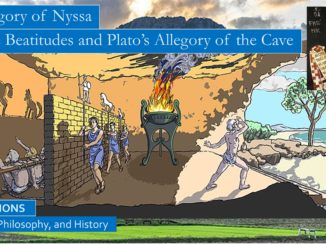
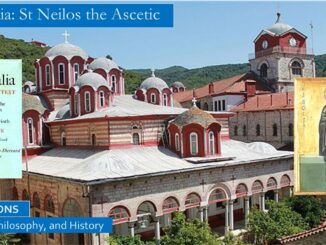

2 Trackbacks / Pingbacks